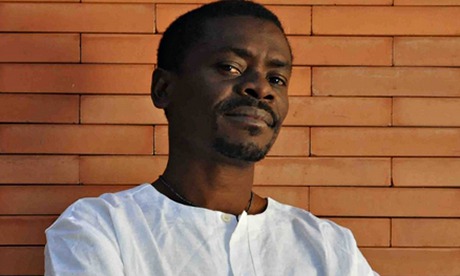
The internet has made the translator's job infinitely easier. No longer must we spend hours in dusty libraries, sifting through piles of reference books like archaeologists. We can consult online dictionaries, search for words in different contexts, find slang in forums; we can Google-image unknown objects, even Google-earth the location of a story. Yet translate something from a country like Equatorial Guinea and things aren't quite so easy.
There is no reliable news outlet in Equatorial Guinea: the government is one of the most corrupt and brutal in the world and independent journalism of all kinds is repressed. President Obiang and his cronies are very rich, but Guineans remain poor: most people don't have access to computers; those who do, have their internet activity monitored and censored.
The situation is even more extreme on Annobón Island. Put Annobón into Google Maps and you get a crude outline of a green blob – you have to click out 10 times before the west coast of Africa even comes into view. There is no online island newspaper, no blogosphere. There are hardly any photos.
Annóbon is the setting for By Night The Mountain Burns, a novel by Juan Tomás Ávila Laurel I translated for And Other Stories, which is due to be published this year. It tells the story of life on an island cut off from the rest of the world, starved of food and knowledge (Annobón became isolated and ostracised following a regime change in Equatorial Guinea). So it was perhaps appropriate for the translator not to have access to everything at the click of a button.
This lack of online information took on a more sinister tone a few days ago, when news reached me that the Equatorial Guinean government was planning to arrest Ávila Laurel. I immediately logged on and... where to turn?
Facebook was my only option: the Apoyo a Juan Tomás Ávila Laurel page was set up in 2011 in support of the author's hunger strike, but has evolved to become a catch-all news and activism page for anyone interested in Equatorial Guinea. There were a number of posts about the government's statement, that in light of plans for an "illegal" demonstration, all activists were to be rounded up by the police. Ávila Laurel had been one of six signatories of a letter asking for permission to stage a sit-in at Ewaiso E'pola square, to protest against police brutality. Many messages on the site advised Ávila Laurel to go into immediate hiding.
He didn't. He can be stubborn at the best of times, never mind the worst, and he refused to be bullied into going underground when he'd done nothing wrong. What he did do was start sending regular text messages to friends abroad, to let them know he was still safe, and he reached out to me and to David Shook, the California-based poet who has translated his poetry.
It's the translator's job to translate a book's words, but of course you also have to translate cultures. You become a bridge between author and publisher, for they will not typically speak one another's language. You become informed about the author's country and circumstances, and you become well acquainted with the author, especially if you've had to ask him a lot of questions for your translation. You become a source of hope in times of crisis, and although you haven't asked for the responsibility, and you maybe find it daunting, you respond as best you can, because you've also become the author's friend.

